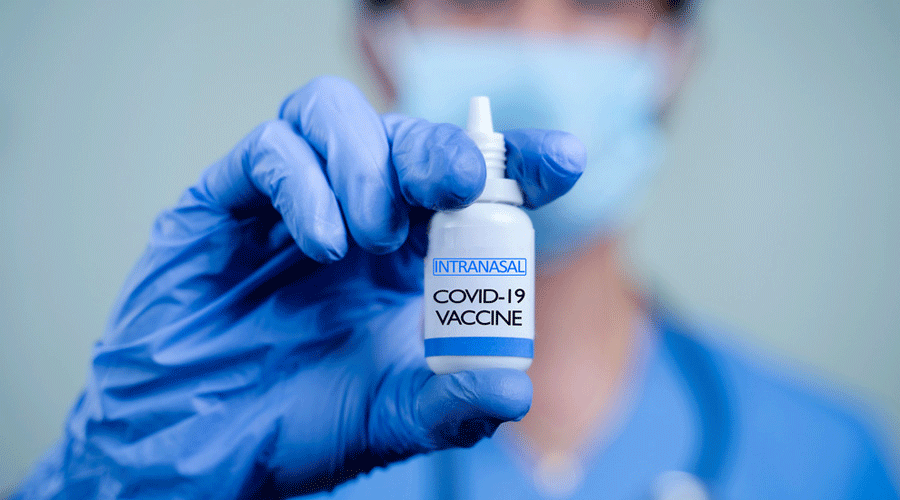A candidate intranasal vaccine against Covid-19, jointly developed by US scientists and India’s Bharat Biotech, has completed clinical trials as both a standalone vaccine and a booster, the vaccine maker said on Monday.
The Hyderabad-based Bharat Biotech said it had submitted to the Central Drugs Standard Control Organisation (CDSCO), the country’s apex regulatory authority for drugs and vaccines, data from two simultaneous clinical trials conducted to evaluate the candidate intranasal vaccine.
The clinical trials on the vaccine, called BBV154, were conducted on 3,100 volunteers at 14 trial sites, the company said. Scientists are hoping that BBV154 will help block both infection and transmission by generating antibodies in the upper respiratory tract.
The CDSCO is expected to send the clinical trials data to a subject expert committee that will determine whether the vaccine should be approved.
In the booster dose study, 875 volunteers who had previously been vaccinated with either Covaxin or Covishield — the main vaccines used in India’s Covid-19 vaccination campaign — received BBV154 at nine trial sites across India.
Bharat Biotech said the studies had established that BBV154 was “safe, well-tolerated and immunogenic” in participants in well-controlled clinical trials. The intranasal delivery is designed to be cost-effective in low and middle-income countries, the company said.
The vaccine, developed by scientists at Washington University, St Louis, and Bharat Biotech, has been observed in animal studies to induce immunity that protects both the upper and lower respiratory tracts from SARS-CoV-2, the virus that causes Covid-19.
Scientists say the most promising aspect of the intranasal vaccine is its potential to confer the so-called sterilising immunity, stopping the virus from replicating in the body.
In contrast, the current Covid-19 vaccines protect people from severe disease but are not as effective in preventing infections from mutated versions of the coronavirus.
In studies on rhesus macaques, researcher Michael Diamond from the Washington University School of Medicine and his colleagues had found that a single intranasal dose of the vaccine induced multiple immune responses and limited or prevented infection in the upper and lower respiratory tracts.
Bharat Biotech managing director Krishna Ella — a scientist turned entrepreneur — had early during the pandemic recognised the intranasal vaccine’s capacity to induce sterilising immunity and invested in the candidate.
Ella had recognised that while the other vaccines under development, including the home-grown Covaxin based on an inactivated (killed) virus, could provide robust immune protection against severe disease, they were not effective in preventing infections and the spread of the virus.











